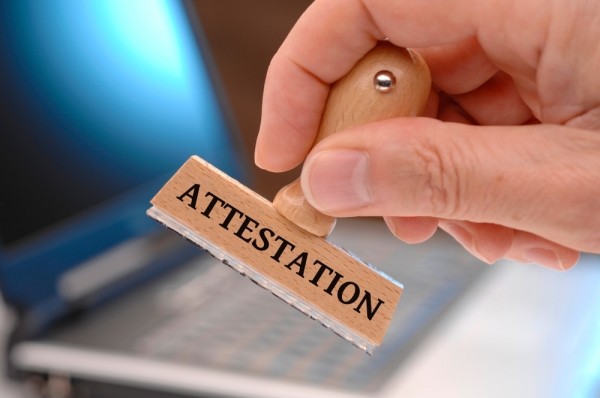Subtotal $0.00
The process of obtaining an apostille can be a vital part of legal, educational, and business activities that require validation of documents across borders. Whether you’re moving to a new country, applying for a job overseas, or conducting international business, having your documents properly apostilled ensures they are recognized as legal in the foreign country where you plan to use them. However, the process of obtaining an apostille can sometimes be time-consuming and confusing if you don’t know the right steps. This guide offers expert tips and insights to help you apostille your documents quickly and efficiently.
What Is an Apostille?
An apostille is a type of authentication issued to documents for use in countries that are members of the Hague Apostille Convention. Essentially, it’s a certificate that verifies the authenticity of the signature, seal, or stamp on a document. The apostille confirms that the document has been issued by a legitimate authority and can be accepted as legal abroad without further validation.
While the apostille process may vary slightly depending on the country, it generally involves the submission of documents to the relevant government authorities (such as a state or foreign ministry), who will then attach the apostille to the document. This process is crucial for documents like birth certificates, diplomas, marriage licenses, and power of attorney documents used internationally.
Why Is Speed Important?
In many cases, the need to obtain an apostille can arise unexpectedly, often with tight deadlines. For example, you may need to start a job abroad or finalize a business contract. Delays in obtaining an apostille could mean postponing travel plans, missing out on job opportunities, or stalling important legal proceedings.
Knowing how to expedite the process can save you time, reduce stress, and ensure that your documents are ready when you need them. Let’s dive into expert tips for speeding up the apostille process.
1. Understand the Requirements for Each Document
Before starting the process, it’s crucial to know what types of documents need an apostille and the specific requirements for each one. Different documents may require different certifications before they can be apostilled. For example, educational documents may need to be authenticated by a school board or a ministry of education before they can be apostilled.
Ensure that all prerequisites, such as notarizations, are in place before you submit the document for apostille. This will prevent delays caused by incomplete submissions. Researching in advance or consulting with a legal expert can help you gather the necessary information and avoid surprises.
2. Use Professional Apostille Services
One of the most efficient ways to speed up the apostille process is by using professional apostille services. These services specialize in the apostille process and have extensive experience dealing with government agencies. They can often expedite your request by ensuring that the required steps are followed correctly from the start.
Many professional apostille services offer a “rush” option that guarantees faster processing. While this option may come with additional fees, it’s worth considering if you’re working against a deadline.
3. Prepare All Documents in Advance
Having all your documents prepared and properly organized before submitting them for an apostille can significantly reduce processing time. This includes ensuring that:
- The document is the original or a certified copy, depending on the requirements.
- The document has been notarized if necessary.
- You have copies of all documents in case something goes wrong.
- You have researched whether any additional certifications (such as state or federal) are required before the apostille.
Being meticulous with document preparation eliminates unnecessary back-and-forth communication with the relevant authorities, saving you valuable time.
4. Ensure Documents Are in the Correct Language
For certain countries, the document you are submitting may need to be in a specific language. While the apostille itself is typically issued in the language of the country providing the apostille, the underlying document must often be translated into the language of the receiving country.
To avoid delays, check with the consulate or legal advisor of the country where the document will be used. If a translation is required, have it done by a certified translator who is recognized by both the issuing and receiving countries.
5. Use Priority Shipping Services
Time is often lost in the transportation of documents to and from apostille authorities. To speed up this part of the process, use priority shipping or courier services that guarantee delivery within a specific time frame. Many professional apostille services include priority shipping as part of their package, but if you’re handling the process on your own, be sure to choose a reliable and fast shipping option.
In addition, consider using a return courier service to ensure that once the apostille is completed, it is sent back to you as quickly as possible. Track your shipment to avoid unexpected delays.
6. Check for Apostille Requirements by Country
Each country has its own rules and regulations regarding apostilles. Some countries have stricter rules on the types of documents they will accept, while others may require additional steps, such as consular legalization, even after an apostille has been obtained.
Research the specific requirements for the country where the apostille is needed. For example, some countries may require additional authentication from the embassy or consulate. Understanding the exact requirements ahead of time will prevent any setbacks or complications once you have submitted your documents.
7. Avoid Peak Processing Times
Certain times of the year can be busier than others for government agencies, particularly during holiday seasons or at the start of a new school year when many students are seeking apostilles for educational documents. If possible, plan to submit your documents during off-peak times to avoid longer processing delays.
For example, avoid submitting apostille requests in late December, when many government offices close for holidays, or in August, when many offices operate with reduced staff. By timing your submission wisely, you can significantly reduce waiting times.
8. Request Electronic Apostilles
Some countries have introduced electronic apostilles (e-Apostilles), which are faster to issue and process than traditional paper apostilles. With electronic apostilles, documents are submitted, verified, and returned digitally, eliminating the need for physical paperwork and shipping.
Check whether the country providing the apostille offers an e-Apostille option. If it does, take advantage of this faster processing method, as it can often reduce the entire process to just a few days rather than several weeks.
9. Follow Up with the Issuing Authority
After submitting your documents, don’t hesitate to follow up with the issuing authority or apostille service to check on the status of your application. While government agencies may not offer frequent updates, professional apostille services often provide tracking options so you can monitor the progress.
If your documents are being processed by a government office, call or email periodically to ensure there are no unforeseen issues. Following up can sometimes expedite the process, as it keeps your application top of mind for the staff handling it.
10. Consider Expedited Service Options
Many government agencies and professional apostille providers offer expedited service options for an additional fee. These services prioritize your application and reduce the time needed to process your request. While expedited services are often more expensive, the faster turnaround may be worth the cost if you are under time pressure.
Be sure to ask about expedited options when you submit your documents. Keep in mind that even with expedited service, having all your documents in order from the start is crucial for ensuring the fastest possible processing.
Conclusion
The apostille process is an essential step for many international activities, from employment and education to legal and business matters. While the process can sometimes be time-consuming, using expert tips can help you obtain an apostille quickly and efficiently. By preparing in advance, using professional services, and staying on top of the process, you can avoid delays and ensure that your documents are ready for international use in the shortest possible time.
The key to faster apostille processing is planning, thoroughness, and a bit of strategy. Understanding the specific requirements for your documents, leveraging technology like e-Apostilles, and choosing reliable services and shipping options will help streamline the process, saving you valuable time and ensuring that your international ventures proceed smoothly.










